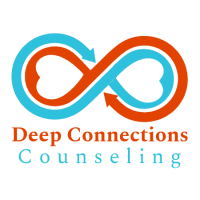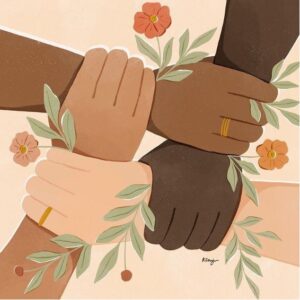Do you ever wish you had done things differently? Living with regret can be an overwhelming burden, but it’s important that you learn how to forgive yourself. Find out 5 ways to cope with regret, so you can move on and embrace the present moment.
“I don’t believe in regrets. There are a few things I’d do differently but I can’t go back in time and redo them, however much I might wish to. All I can do is learn from the past and move forward.” – Malorie Blackman
One of the scariest parts about life is the feeling of regret. To me, regret is the feeling of discontent about the state of our lives and blaming our actions of our past for denying us the chance to succeed. When I think about the great regrets of my life, I feel the lowness of my heart, the entanglement of my brain, the entrapment of my body in the shell of the mistakes that I have made.
My brain repeatedly generating “Oh my god I’m so mad at myself”’s, ”I’m never doing this again”’s, even “I hate myself”’s that ruminate the ventricles of my brain like evil spirits of a haunted home.
Uncovering the nature of regret
That sensation of entrapment is critical to the feeling of regret. When I think about it, regret intrinsically and solely relies on a past event to exist. That past event no longer exists, yet the regret persists. I am, in a sense, trapping myself within the confines of my previous error. Regret is a virus, surviving like a parasite on your emotional needs and dwelling on your mistakes.
Regret can come in several forms.
- For some, the past event was a mistake that led to a loss in our professional or social lives, or barred us from achieving something towards which we have worked so hard.
- For others, the mistake was simply the absence of any action; that we should have acted, but remained idle in the face of opportunity.
My regrets
In my life, regret often took the form of wishing that I had simply done more. Because I had not done enough in my past, I was in a worse position in my present because of it. For the longest time, regret excessively consumed my emotional health.
Whatever the nature of the mistake, one thing was certain: it would be sure to follow me around for the next few days or even weeks in the form of persisting regret, hanging around unashamedly reminding me regularly of its existence like a clingy ghost.
I felt frustrated. Frustrated at nothing particularly; it was directed nonspecifically at anything that was near me during my time of regret. Unfortunately, it did lash out in the direction of other people sometimes. Dealing with my regretful emotions in an unhealthy way not only negatively affected my mental and emotional health but also the people around me and my relationships with people we care about.
However, most often, it was aimed at myself. The “I hate myself”’s and the “I’m so stupid”’s came and went. I felt as though it was because of myself and my reckless and inattentive actions that I was worse off than I could have been.
Or it was the lack of action that sent me down a spiral, centered around the fear that life had given me an opportunity with which I wasted by doing nothing. I would feel as though I had let myself down. Life had handed me opportunity after opportunity on a silver plate and I continued to succumb to my laziness and stubbornness.
Regret disproportionately made up the emotions that I felt each day. I felt ashamed of who I was in the past and afraid of who I might become given the mistakes that I made. It was negatively impacting my life and the lives of other people around me, damaging my relationships.
Like a Phoenix from the ashes of regret
It was a gradual process through which I realized that regret can and will be conquered. The most important watershed moment was when I noticed that the emotions and regrets that had swallowed my life stemmed from moments that no longer existed. That failure that I experienced a week ago? That failure had happened but was no longer happening. That opportunity that I failed to act on a few days ago? The moment in time had passed to pave way for the current moment and the opportunities brought with it.
It was a slow journey to recognizing that how I perceived my emotions drastically affected how I felt. By vilifying and framing myself as the antagonist to my own human experience, I was trying to shift the blame of my failures onto something else, but that something else was just my past self. The pain I was experiencing in the present was through the accord of my own self.
At the core of this realization is acknowledging that you are not the same person who made those mistakes. Just as how you do not have the same beliefs, values, or skills as yourself 15 years ago, you are also not the same as your “pre-mistake” self. You have experienced something that your past self had not yet and are therefore necessarily not the same. Similar to how we should not judge the people of the past through today’s standards, we should also not judge our past self through the lens of what we know to be true now. Dedicate some thought into how you may be punishing yourself for something that your past self simply did not know. Remind yourself that you are not deserving of the punishment and that you deserve to move forward and to be respected.
Discovering your own Emotional Strength and Control through the RAIN method
Learning how to forgive yourself is the key to moving on from hurt. One of the key takeaways from that post was that
- Forgiveness is not about telling the other person that it was okay to hurt you or that you have forgotten about their actions. Instead,
- It is about recognizing that you deserve to move past the hurt that they have caused you, and expressing to the world that you will no longer allow what someone else did then to affect how you feel now.
In a Venn diagram between the concepts of forgiveness and dealing with regret, the overlap would be vast. Both ideas are essential in the development of a strong and resilient human spirit. Both involve the process of facing unexpected challenges and moving along and dealing with the emotions that come with these challenges in a way that empowers the human spirit. In both cases, it is up to us as the chief commander of our own lives to decide how we respond to these external stresses. These concepts of human resilience build off the foundation that we have of our emotional control. Each human being has power over his or her emotions.
There will be times in which you may feel that you have lost control. The best of us still slip and become immersed in guilt and rage against the world, encircling ourselves in a torrent of misguided, anger-defined grudge. In these moments, sit down, take a deep breath, close your eyes, and remember the RAIN method. Recognize the feelings and emotions in your mind and body. Allow these feelings to exist as they are and investigate inwards what it is that your body is trying to tell you. What does it need? Focus on your natural loving awareness (Feeling Overwhelmed? Remember RAIN). Your body may want to judge these emotions as “bad” or “harmful”, rather they should simply be regarded as your body’s natural emotional responses. In these times of light and contemplation, we are able to see that the roots of these feelings are grounded in a situation that
- we had/have no control over and/or
- happened in the past and no longer is the present moment. The emotions, often negative, that come with feelings of regret and frustration are propagated through one person and can be challenged and rewired by one person: you. You yourself have the authority to determine your reactions to your circumstances. Control what you can change and accept what you can not.
As a human being, you will make mistakes. You will miss opportunities. You may feel entangled in the hurt and anguish of regret. But you will always have the option of getting back up and trying again, looking for more opportunities in the light of the new moment. Your emotions will always and forever will be entirely within your control.
How to cope with Regret
To help guide you through the journey of accepting and moving forward from your past, here are five guideposts to help you keep your eyes and life looking forward.
1. Recognize our own emotions and the nature of these emotions
What is regret really? Oftentimes, when we are in a state of regret, our emotions may be blurred and our judgement altered. Seeing red “red-ifies” our emotions, heightening them, effectively masking the root of our emotions and the emotional skills needed to correctly identify them.
This is not a human flaw; rather, it is an evolutionary benefit. In times of stress, we need to be able to hyperactivate our body. Our early ancestors needed to be able to respond to stresses by overactivating our nervous and hormonal systems, which act as the foundation of our emotions.
It is therefore up to us as master of our own emotions to approach regret with the intention of moving forward with our lives. Be sure to address feelings of regret with sympathy and understanding, as it is in the times of peace and contemplation that we are able to see the true nature of our emotions.
When we are able to see with clear vision and a clear mind, we are able to identify the parasitic nature of regret. It feeds off of and relies almost completely on its host giving it the worry and the attention that it needs to survive.
When you focus your attention on the present moment and your presence in the moment, the parasite starves and you are again able to truly live in the now.
This is the goal.
Now is where the opportunities are. Now is where the moment is. Most importantly, it is now where you have control over your life. Not your past nor your future.
Just now.
2. Acknowledge that every moment is fleeting and impermanent
You are no longer the person who made that mistake. The moment is no longer the present moment. At any given moment, you have the opportunity to give yourself the chance to become the person you want to be. At any instance, you have the power to let go of the past and accept that in the next moment, you would be someone new.
3. Appreciate that the person you were versus person you are now
Adding onto the previous guidepost, it is not just moments that are impermanent. The self that you are right now, wherever you are reading this post, is a different person than the person you were yesterday. Of course, you probably have the same name and likely the same physical body; but, it is your experiences that have changed. Recognize that self-judgement and regret are often irrational judgements of your past self based on knowledge that you have as your present self.
4. Take and use these experiences as lessons learned for your future
The past is meant to stay in the past; it is the lessons from the past that should carry the legacy. All of this to say that while the primary focus of overcoming regret is moving on from the past and focusing on the future, it is equally important to learn to adapt for your future.
A helpful reminder is to be friendly and sympathetic to both your past, present, and future self.
- Forgive your past self for the mistakes made and the opportunities missed. It is in no one’s better interest to dwell on past mistakes.
- Focus on your present self from regret by focusing on the present moment. By being aware of your present surroundings, you are doing your present self a favor by providing it a new moment in the now.
- Free your future self from the possibility of making the same mistake by learning to adapt to your environment by learning from your mistakes. Any time we prioritize adapting to our situation, we ensure the possibility that our happiness can exist even when the situation is not in our favor.
5. Be ready to fail and get back up, ready for the next challenge
When all is said and done, regret is often not a one and done type of deal. Regrets are born from unresolved mistakes and mistakes are inevitable.
Therefore, the feeling of regret has a potential to be formed at any time, anywhere. Understand that mistakes and regret can and likely will come again, but what is important is that you now have a better understanding of what regret is and how better to handle it if it arises again.
With each mistake comes an opportunity to better understand your own thinking processes and the nature of your personal regrets. See your stumbles as opportunities to adapt for your future.
Find your closure from regret
“The only person that ever stumbles is a guy moving forward. You don’t stumble backwards; you stumble forward, and you never stumble when you’re stationary. So don’t worry about stumbling. Keep pushing it forward.” – James Carville
Moving forward from regret can look like a lot of things for a lot of different people’s journeys but the common factor in these stories is the acknowledgment that you deserve to not be constrained by the actions of your past self. You deserve to move forward.
The successes and failures that I had chosen to define myself by no longer defined the self of my current moment. The self of my now lives in the current moment unrestrained from the moments of the past. A moment in which new opportunities are present in a world that is new. Opportunities to be captured and taken not in response to past mistakes or to ameliorate regrets, but emerged out of a newfound resilience, adaptation, and hope.
Learning to accept your past rather than regretting it is a milestone of the human experience.
Regret is a tough emotion to conquer. Let us help guide you
The route to emotional security can be twisty and windy, and sometimes you may find yourself lost in the heightened emotions brought on by regret. Do not fret. Do not give up. Keep persevering because this journey is one of persistence and true understanding.
If you find yourself at an emotional plateau, let us at Deep Connections Counseling help you. We are trained to facilitate your emotional travels using the courage and the resilience that you already have. Call us at (757) 704-5558 or contact us for more information.
Try a free 15-minute consultation to ensure this is the right path for you!

Kinga Gudor, PhD
Kinga is a Licensed Clinical Social Worker (LCSW) with more than 15 years of experience. She specializes in couples therapy and working with individuals from a multicultural background.









